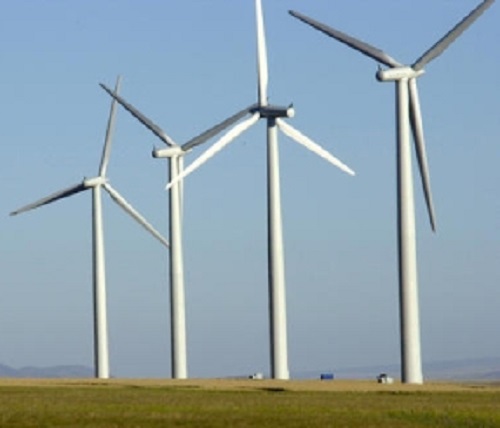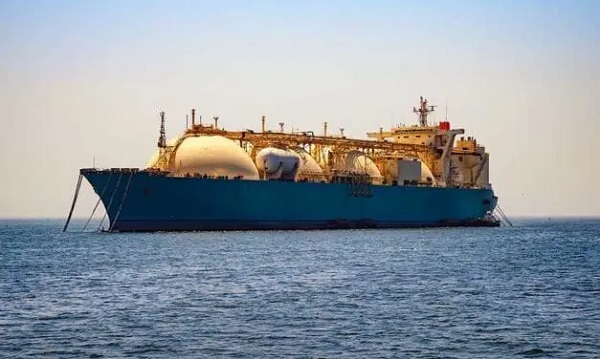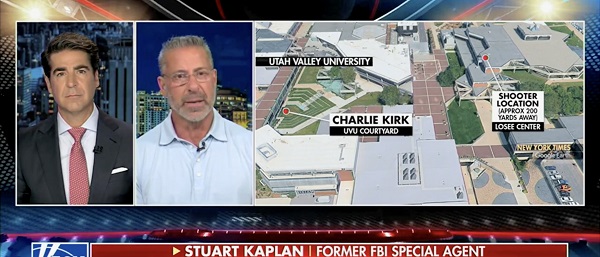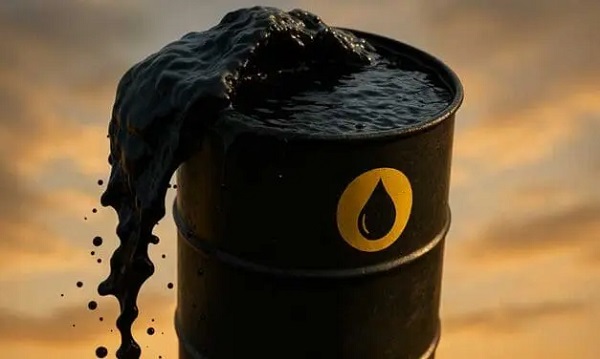Agriculture
Farmers’ protests reach the heart of the EU as chaos unfolds outside European Parliament

European farmers in Brussels
From LifeSiteNews
Protesting farmers blocked many roads with tractors, started bonfires, set off fireworks, and toppled a statue in front of the European Parliament.
Protestors have now blocked streets in Brussels with tractors and started bonfires in front of the European Parliament.
On February 1, the Europe-wide farmers’ protest against policies threatening their existence reached Brussels, where protestors blocked many roads with tractors, started bonfires, set off fireworks, and toppled a statue in front of the European Parliament.
🚨🇧🇪BREAKING: FARMERS TARGET EUROPEAN PARLIAMENT IN BRUSSELS
As anger sweeps through farming communities in Europe, protesters in Belgium have begun to build barricades and start fires outside the EU parliament.
They’re protesting new environmental regulations they call… https://t.co/nqmrV9k5OS pic.twitter.com/vWSgWVJyBr
— Mario Nawfal (@MarioNawfal) February 1, 2024
“We want to stop these crazy laws that come every single day from the European Commission,” a Spanish farmer representing his country’s farmer’s union told Reuters.
According to Reuters, the police used tear gas and water cannons against some protestors who tried to tear down barriers that were erected to protect the parliament.
The protest in Brussels happened in the context of a continent-wide uprising, including in France, where 10,000 farmers erected more than 100 blockades on important roads across the country. Farmer protests also took place in Spain, Portugal, Italy, Greece, Germany, Scotland and Ireland.
READ: How Dutch protests ignited a global backlash to the ‘green’ war on farmers
🚨 Belgian farmers have joined the protests across Europepic.twitter.com/SWrrFMCfhY
— Mario Nawfal (@MarioNawfal) January 31, 2024
A German comedian and member of the European Parliament, Martin Sonneborn, wrote on X, formerly Twitter, “thousands of farmers with agricultural delegations from France, Belgium, Spain, Italy and Portugal camped outside my workplace in Brussels. The city is at a standstill, already 230 kilometers of traffic jams at 8 o’clock in the morning.”
“As far as the EU is concerned, the outside world and the inside world are clearly no longer in any meaningful relationship with each other: while more than 1,300 tractors are blocking the European Parliament and its burning forecourt outside, the 27 heads of state inside have not even put the farmers’ anger on their agenda,” he wrote.
“The so-called common people, the farmers & workers, have often been the main driving force in European history. While those in office are, well, rather described as somewhat ‘retarding’.”
“Vive la farmers’ revolution!” Sonneborn concluded.
In der Nacht vor dem heutigen EU-Sondergipfel haben Tausende Bauern mit Landwirtschaftsdelegationen aus Frankreich, Belgien, Spanien, Italien und Portugal vor meinem Arbeitsplatz in Brüssel kampiert. Die Stadt steht still, schon 230 Kilometer Stau um 8 Uhr morgens. Gut, dass ich… pic.twitter.com/4nKXIKWLfF
— Martin Sonneborn (@MartinSonneborn) February 1, 2024
Archbishop Carlo Maria Viganò, the former papal nuncio to the U.S., expressed his support for the farmer’s protests in a recent post on X.
The globalist criminal plan wants to destroy traditional agriculture, animal husbandry, and fishing in order to force people to eat artificial food produced by multinational corporations. And it is the big investment funds and the Word Economic Forum that are lobbying parliaments… pic.twitter.com/YCcqBWSstW
— Arcivescovo Carlo Maria Viganò (@CarloMVigano) January 31, 2024
“The globalist criminal plan wants to destroy traditional agriculture, animal husbandry, and fishing in order to force people to eat artificial food produced by multinational corporations,” he wrote. “And it is the big investment funds and the Word Economic Forum that are lobbying parliaments to impose a devastating and inhuman ‘transition’.”
“I express my complete solidarity with and encouragement to the farmers, ranchers, fishermen, truck drivers, and all those who support them.”
“Let us accompany with prayer those who are fighting against the New World Order. May the Rosary be the spiritual chain that unites us. May the Lord accompany, protect, and bless those who are waking up before it is too late,” Viganò concluded.
Foreign imports and ‘climate change’ policies threaten existence of farmers
At the time of the protests, an extraordinary summit of the heads of state of the EU members took place in Brussels. During the meeting, the politicians approved a 50 billion euro aid package for Ukraine.
One of the farmers’ concerns is the flooding of the European market with cheap Ukrainian imports that are meant to help the country with its war efforts. Since Ukraine and other non-EU countries do not have to adhere to the high environmental standards of the EU, the farmers view it as unfair competition that threatens their existence.
For the same reason, the farmers also oppose a planned trade deal between the EU and the Mercosur bloc, a federation of countries in South America.
One of the major issues for farmers is the so-called “green” measures imposed by EU bureaucrats that include higher taxes or cuts to tax subsidies as well as bans on necessary tools such as nitrogen fertilizer.
The farmers have also been blamed for their greenhouse emissions and their alleged contribution to “climate change”. They are heavily affected by the EU’s plan to achieve “net-zero” emissions and make the bloc “climate-neutral” by 2050.
The plan includes cutting fertilizer use by 20%, limiting the amount of land dedicated to agricultural use, halving pesticides by 2030, and doubling organic food production.
While some of these measures may have a positive impact on food quality, they put immense pressure on farmers, especially smaller farms, whose numbers have been on the decline for decades. The EU’s plan to combat so-called “climate change” could lead to the majority of farmland being controlled by a relatively small elite.
READ: No farmers, no freedom: Why globalists want to control the world’s food supply
Part of the problem for smaller farms is the EU’s common agricultural policy (CAP), a € 55 billion per year subsidy system that has been in place for over 60 years. The system “has historically been based on economy of scale: bigger farms, bigger holdings, common standards,” Jon Henley from The Guardian writes.
This policy has led to a continuous decrease in small farms in Europe as they have become increasingly uncompetitive.
Agriculture
In the USA, Food Trumps Green Energy, Wind And Solar


From the Daily Caller News Foundation
By Bonner Cohen
“We will not approve wind or farmer destroying Solar,” said President Trump in an Aug. 20 post on Truth Social. “The days of stupidity are over in the USA!!!”
Trump’s remarks came six weeks after enactment of his One Big Beautiful Bill terminated tax credits for wind and solar projects by the end of 2027.
The Trump administration has also issued a stop-work order for the Revolution Wind project, an industrial-scale offshore wind project 12 miles off the Rhode Island coast that was 80 percent completed. This was followed by an Aug. 29 announcement by the Department of Transportation that it was cutting around $679 million in federal funding for 12 offshore wind farms in 11 states, calling the projects “wasteful.”
Sending an unmistakable message to investors to avoid risking their capital on no-longer-fashionable green energy, the Department of Agriculture (USDA) is pulling the plug on a slew of funding programs for wind and solar power.
“Our prime farmland should not be wasted and replaced with green new deal subsidized solar panels,” said Agriculture Secretary Brooke Rollins on a visit to Tennessee in late August. “We are no longer allowing businesses to use your taxpayer dollars to fund solar projects on prime American farmland, and we will no longer allow solar panels manufactured by foreign adversaries to be used in our USDA-funded projects.”
The White House is putting the squeeze on an industry that can ill-afford to lose the privileges it has enjoyed for so many years. Acknowledging the hesitancy of investors to fund green-energy projects with the looming phaseout of federal subsidies, James Holmes, CEO of Solx, a solar module manufacturer, told The Washington Post, “We’re seeing some paralysis in decision-making in the developer world right now.” He added, “There’s been a pretty significant hit to our industry, but we’ll get through it.”
That may not be easy. According to SolarInsure, a firm that tracks the commercial performance of the domestic solar industry, over 100 solar companies declared bankruptcy or shut down in 2024—a year before the second Trump administration started turning the screws on the industry.
As wind and solar companies confront an increasingly unfavorable commercial and political climate, green energy is also taking a hit from its global financial support network.
The United Nations-backed Net Zero Banking Alliance (NZBA) “has suspended activities, following the departure of numerous financial institutions from its ranks amid political pressure from the Trump administration,” The Wall Street Journal reported. Established in 2021, the NZBA’s 120 banks in 40 countries were a formidable element in global decarbonization schemes, which included support for wind and solar power. Among the U.S. banks that headed for the exits in the aftermath of Trump’s election were JP Morgan, Citi, and Morgan Stanley. They have been joined more recently by European heavyweights HSBC, Barclays, and UBS.
Wind and solar power require a lot of upfront capital, and investors may be having second thoughts about placing their bets on what looks like a losing horse.
“Wind and solar energy are dilute, intermittent, fragile, surface-intensive, transmission-extensive, and government-dependent,” notes Robert Bradley, founder and CEO of the Institute for Energy Research.
Given these inherent disadvantages of wind and solar power, it’s no surprise that the Department of Agriculture is throttling the flow of taxpayer money to solar projects. The USDA’s mission is to “provide leadership on food, agriculture, food, natural resources, rural development, nutrition, and related issues….” It is not to help prop up an industry whose best days are behind it.
Effective immediately, wind and solar projects will no longer be eligible for USDA Rural Development Business and Industry (B&I) Guaranteed Loan Program. A second USDA energy-related guaranteed loan program, known by the acronym REAP, will henceforth require that wind and solar installations on farms and ranches be “right-sized for their facilities.”
If project applications include ground-mounted solar photovoltaic systems larger than 50 kilowatts or such systems that “cannot document historical energy usage,” they will not be eligible for REAP.
Ending Misallocation Of Resources
“For too long, Washington bureaucrats and foreign adversaries have tried to dictate how we use our land and our resources,” said Republican Rep. Harriot Hagermann of Wyoming. “Taxpayers should never be forced to bankroll green new deal scams that destroy our farmland and undermine our food security.”
Hagermann’s citing of “foreign adversaries” is a clear reference to China, which is by far the world’s leading manufacturer of solar panels, according to the International Energy Agency.
According to a USDA study from 2024, 424,000 acres of rural land were home to wind turbines and solar arrays in 2020. While this – outdated – figure represents less than 0.05 percent of the nearly 900 million acres of farmland in the U.S., the prospect of ever-increasing amounts of farmland being taken out of full-time food production to support part-time energy was enough to persuade USDA that a change of course was in order.
Bonner Russell Cohen, Ph. D., is a senior policy analyst with the Committee for a Constructive Tomorrow (CFACT).
Agriculture
USDA reverses course under Trump, scraps Biden-era “socially disadvantaged” farm rules

Quick Hit:
The Trump administration’s USDA is pulling back from defending Biden-era farm aid programs that gave preferential treatment based on race and gender. The move aligns with President Trump’s directive to dismantle remaining diversity, equity, and inclusion initiatives across federal agencies.
Key Details:
- The Wisconsin Institute for Law and Liberty (WILL) sued on behalf of dairy farmer Adam Faust, challenging USDA aid programs that favor minorities and women.
- Programs under scrutiny include loan guarantees, dairy coverage, and conservation incentives, all of which disadvantaged white male farmers.
- USDA issued a final rule eliminating “socially disadvantaged” designations, stating programs must uphold meritocracy, fairness, and equal opportunity.
Diving Deeper:
The U.S. Department of Agriculture under the Trump administration is abandoning its defense of farm aid programs created during the Biden years that granted benefits based on race and gender. In a recent court filing, the USDA declined to defend several programs that civil rights watchdogs argue discriminated against white male farmers.
The litigation was brought forward by the Wisconsin Institute for Law and Liberty (WILL) on behalf of Adam Faust, a Wisconsin dairy farmer. Faust contends that the Biden-era rules violated equal protection principles by privileging minorities and women over others in loan guarantees, dairy margin coverage, and conservation cost-share programs.
Under the loan guarantee program, minority and female farmers could secure up to 95% federal backing on loans, while white male farmers were limited to 90%. This disparity directly affected borrowing power and interest rates. Similarly, the Dairy Margin Coverage Program charged white male farmers a $100 annual fee, while exempting “socially disadvantaged” farmers. In conservation projects, minority and female participants received up to 90% reimbursement for costs, while others received only 75%.
On July 10, the USDA issued a final rule to strike the “socially disadvantaged” designation from its regulations, calling it inconsistent with constitutional principles and with President Trump’s policy objectives. “Moving forward,” the USDA rule stated, “USDA will no longer apply race- or sex-based criteria in its decision-making processes, ensuring that its programs are administered in a manner that upholds the principles of meritocracy, fairness, and equal opportunity for all participants.”
The department noted that while the loan guarantee program will be amended immediately, officials are still reviewing how to apply the new policy to the dairy and conservation programs. The USDA also signaled that its decision “could obviate the need for further litigation,” though WILL has indicated its legal fight will continue.
“This lawsuit served as a much-needed reminder to the USDA that President Trump has ordered the end to all federal DEI programs,” said Dan Lennington, deputy legal counsel at WILL. “There’s more work to be done, but today’s victory gives us a clear path to do even more in the name of equality.”
-

 Censorship Industrial Complex2 hours ago
Censorship Industrial Complex2 hours agoFreedom of speech under threat on university campuses in Canada
-

 Business2 hours ago
Business2 hours agoCarney engaging in Orwellian doublethink with federal budget rhetoric
-

 Energy2 hours ago
Energy2 hours agoCanada’s LNG breakthrough must be just the beginning
-

 Business3 hours ago
Business3 hours agoCourt’s ‘Aboriginal title’ ruling further damages B.C.’s investment climate
-

 Alberta2 days ago
Alberta2 days agoAlberta deserves a police force that actually reflects its values
-

 Crime2 days ago
Crime2 days agoCharlie Kirk Killer’s Ammo Reportedly Marked With Transgender, Anti-‘Fascist’ Messages
-

 Crime2 days ago
Crime2 days agoFormer FBI Agent Says Charlie Kirk Assassination May Have Been ‘A Professional Hit’
-

 Alberta2 days ago
Alberta2 days agoOPEC+ chooses market share over stability, and Canada will pay





